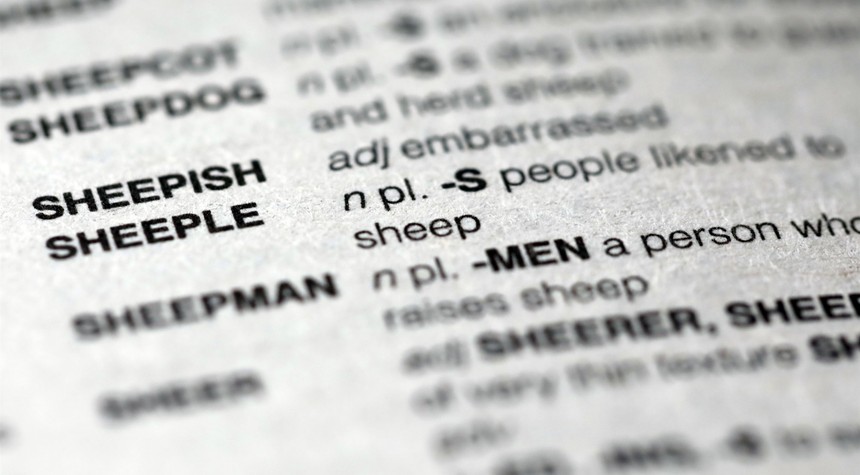Cambridge Dictionary Changes Definition of 'Man' and 'Woman' in Massive Cave to Trans Activists
The dictionary used to be the place you went to get the definition of a word or help you win at Scrabble. Now, at least one of those things is off the table, at least for the Cambridge Dictionary.
Cambridge Dictionary changed the definitions of both “man” and “woman” to a definition only believed by a small group of trans activists and their allies. Instead of the standard definition of “man,” it now includes:
An adult who lives and identifies as male though they may have been said to have a different sex at birth
This is followed by a couple of examples of the word being used in a sentence, like this one:
Mark is a trans man (= a man who was said to be female when they were born)
The fact that this example contained references to a medical expert is highly interesting.
The definition of “woman” follows much in the same vein, only in the examples they threw this in:
She was the first trans woman elected to a national office.
If it wasn’t obvious that these examples of usage were written by activists, then I’m not sure what else you’d need here.
Even if it wasn’t written by activists, the effect is just the same. The Cambridge Dictionary has embraced the idea that words can mean whatever people want them to, and in doing so, it makes the definitions of words absolutely worthless. If there are no real definitions, then what’s the point of buying a dictionary or taking a dictionary seriously?
Cambridge Dictionary has effectively renounced itself as an authority on defining words, making websites like Urban Dictionary just as, if not more, useful, since it never claimed to be an absolute authority on word definitions.
But the truth, no matter how you slice it, is that “man” and “woman” have very specific meanings. A “man” is a male adult human being. A “woman” is an adult human female.
And that’s it. You don’t need more than that. If they truly cared about the definition they’d add “Trans-Man” or “Trans-Woman,” but they didn’t. They went straight for the actual word, in hopes to assist transgender activists in controlling the language–and if you control the language, you control the conversation.





Post a Comment